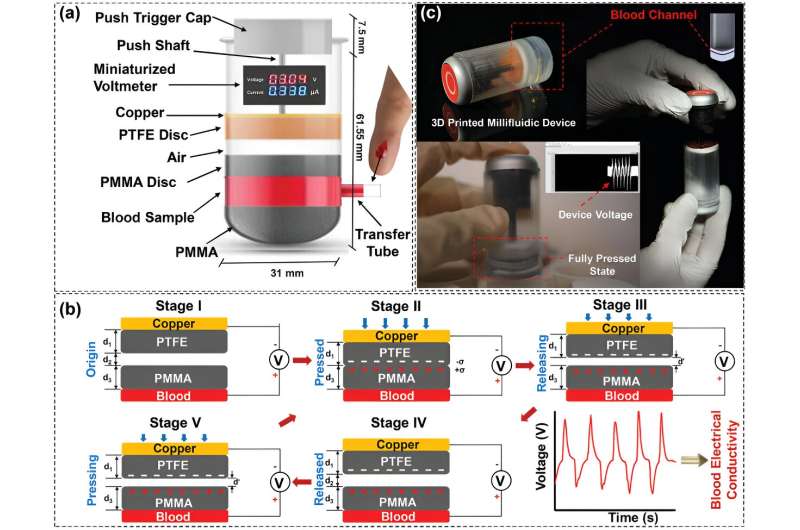Metabolic disorders, like diabetes and osteoporosis, are burgeoning throughout the world, especially in developing countries.
The diagnosis for these disorders is typically a blood test, but because the existing health care infrastructure in remote areas is unable to support these tests, most individuals go undiagnosed and without treatment. Conventional methods also involve labor-intensive and invasive processes which tend to be time-consuming and make real-time monitoring unfeasible, particularly in real life settings and in country-side populations.
Researchers at the University of Pittsburgh and University of Pittsburgh Medical Center are proposing a new device that uses blood to generate electricity and measure its conductivity, opening doors to medical care in any location. Their paper, “Millifluidic Nanogenerator Lab-on-a-Chip Device for Blood Electrical Conductivity Monitoring at Low Frequency,” was published in Advanced Materials.
“As the fields of nanotechnology and microfluidics continue to advance, there is a growing opportunity to develop lab-on-a-chip devices capable of surrounding the constraints of modern medical care,” said Amir Alavi, assistant professor of civil and environmental engineering at Pitt’s Swanson School of Engineering.

